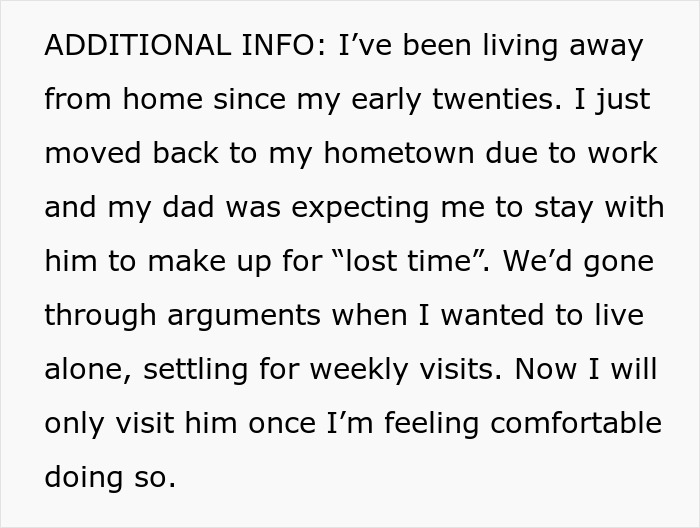Parents often say that everything they do is for the well-being of their children. However, sometimes they might not realize they’re going overboard with the “everything” bit. In fact, 62% of parents in the U.S. admit they can be too overprotective sometimes. And that goes for parents whose children are already adults.
One woman shared her story of an overprotective dad. When she found a tracker in her car, she asked others whether confronting him about it was inappropriate. People validated her feelings, and many pointed out that such behavior was more alarming than just regular overprotectiveness.
Overbearing parents sometimes don’t leave you alone, even when you’re in your 30s

Image credits: Dimaberlin / Envato (not the actual photo)
This woman found a tracker on her car and decided to confront her overprotective dad about it


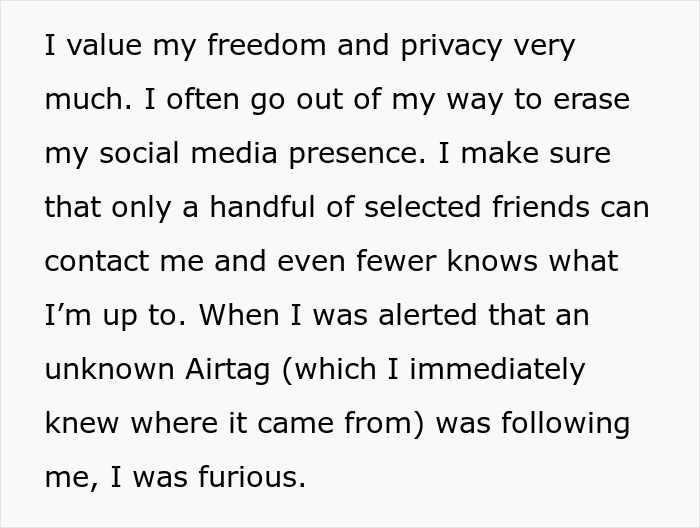
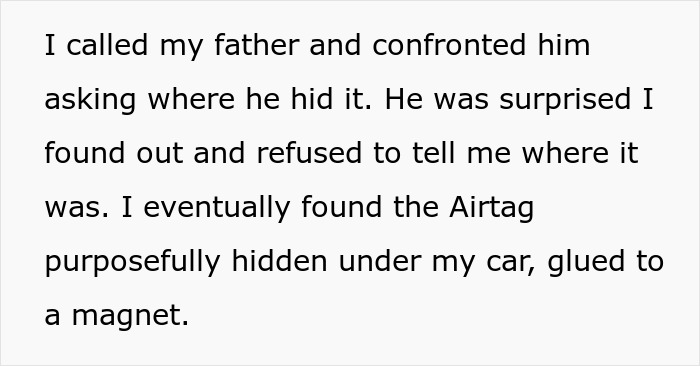

Image credits: suspensionnn

Image credits: Prostock-studio / Envato (not the actual photo)
Overprotective parents often tend to be authoritarian
Having overprotective parents as a kid is one thing; having your parents overstep privacy boundaries when you’re an adult is entirely different. As children, we’re not able to care for ourselves physically and emotionally, so parents do that for us. Unfortunately, sometimes, they do it in a way that hinders our development of a healthy sense of self.
Experts also refer to overprotective parenting as controlling parenting or authoritarian parenting. It’s when parents meddle too much in the business of their children, wanting to control many aspects of their lives.
When kids are little, it’s about not letting them go play out in the street because it’s not safe. It’s disapproving of friendships with other kids the parents deem to be bad influences. And if someone were to ask the parents why they do it, the answer would probably be that it’s for the child’s sake.
Yet the reality is the opposite. Experts claim that overly protective parents focus more on their needs than on the needs of the child. Licensed Clinical Psychologist Seth Meyers, Psy.D., writes that overprotectiveness “is more about a parent’s own anxieties, insecurities and paranoia than about merely protecting the child.”
So when the child grows up, the parents might control them in other ways. Some offer unsolicited life advice, and others try controlling their adult children through financial rewards that come with strings. Other times, they guilt-trip their children for not appreciating everything they’ve done for them. And in cases like this one, they overstep privacy boundaries by tracking them without their knowledge.
Overly protective parents might also be too dependent on their children

Image credits: Monstera Production / Pexels (not the actual photo)
Meyers also suggests that helicopter parents are controlling because they might be too co-dependent on their children. They want them to stay home as much and as long as possible to spend as much time together as they can.
Co-dependency works both ways here: parents overprotect their kids because they’re too co-dependent, and the kids they raise might turn out too co-dependent on their parents because they weren’t given the chance to develop their sense of self properly.
According to a rehabilitation center Alta Mira, parents do so because they probably didn’t have a healthy relationship with their parents. “When a parent is codependent on their child, they place an unhealthy need on him or her for their own emotional, psychological, and social support—usually due to the lack of such defining systems in the parent’s own upbringing.”
One study found that the majority of co-dependent mothers also suffer from depression, anxiety, and even personality disorders. So, experts link overprotective behaviors from parents to them having co-dependent personalities. It illustrates how hard it can be for people to break the cycles of unhealthy behaviors.
“It is crucial that all parents – regardless of their own histories, issues with separation or codependence and so forth – recognize that some level of independence granted to the child will help them grow and evolve,” Meyers notes.
Such a violation of the daughter’s boundaries was a major red flag for many people



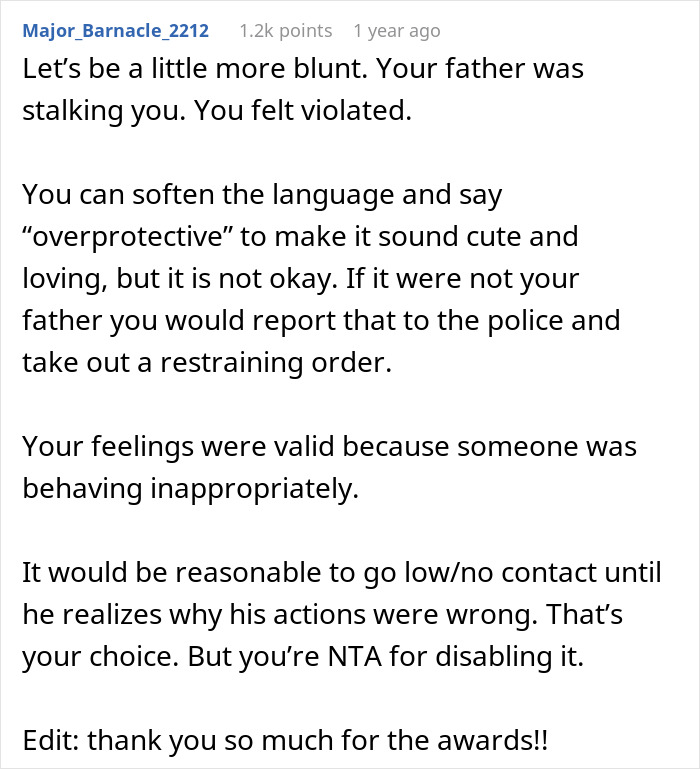
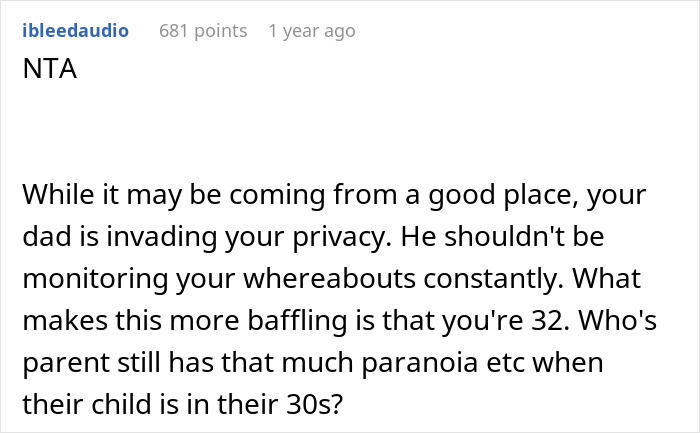
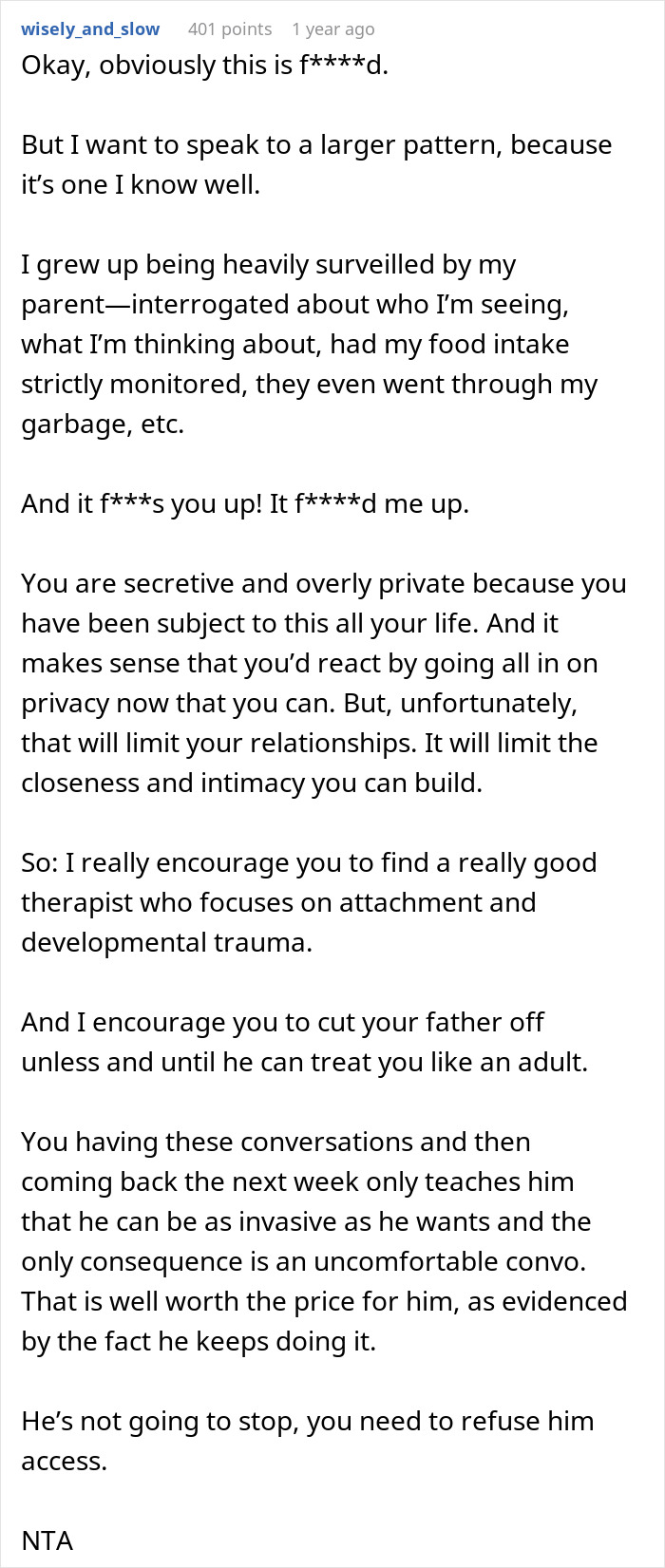
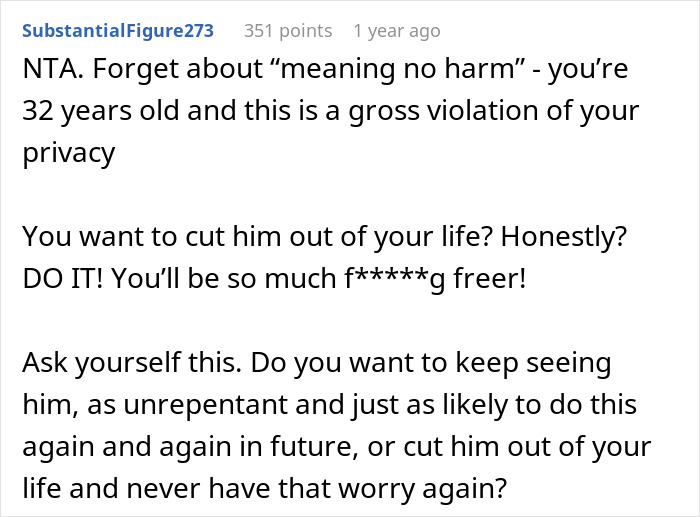

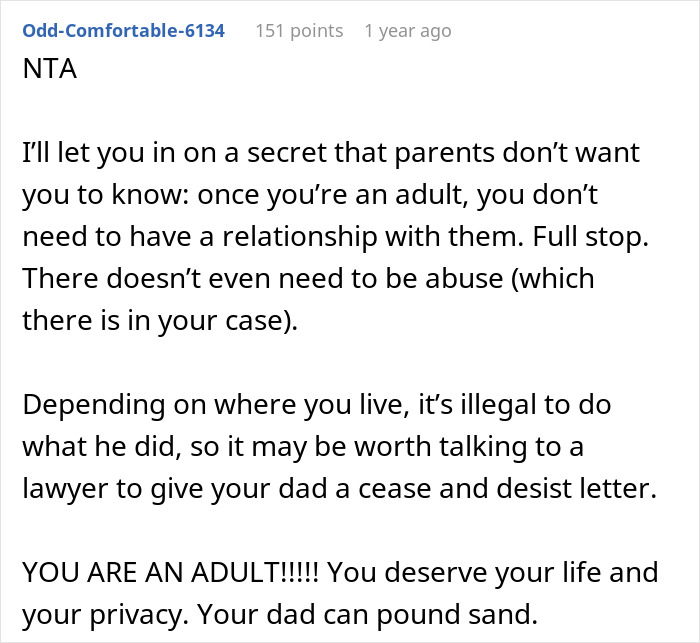

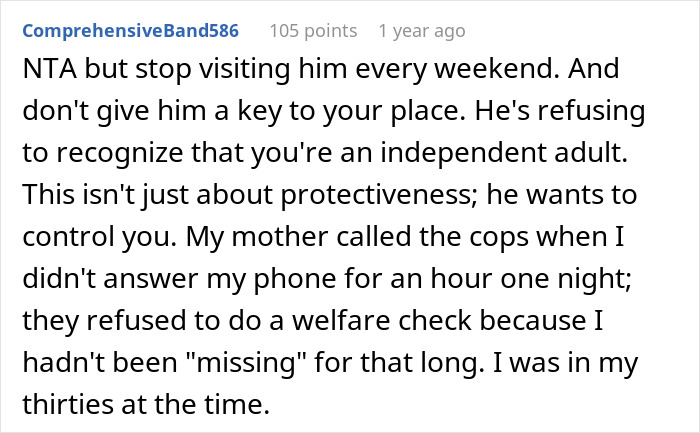
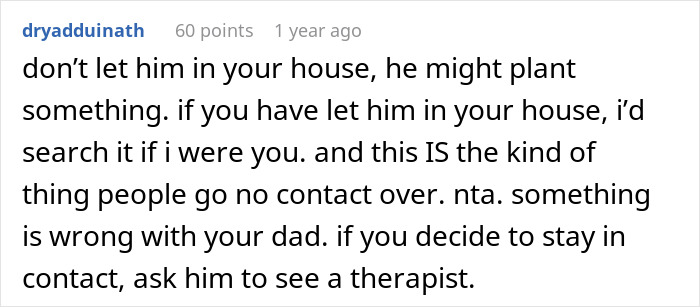
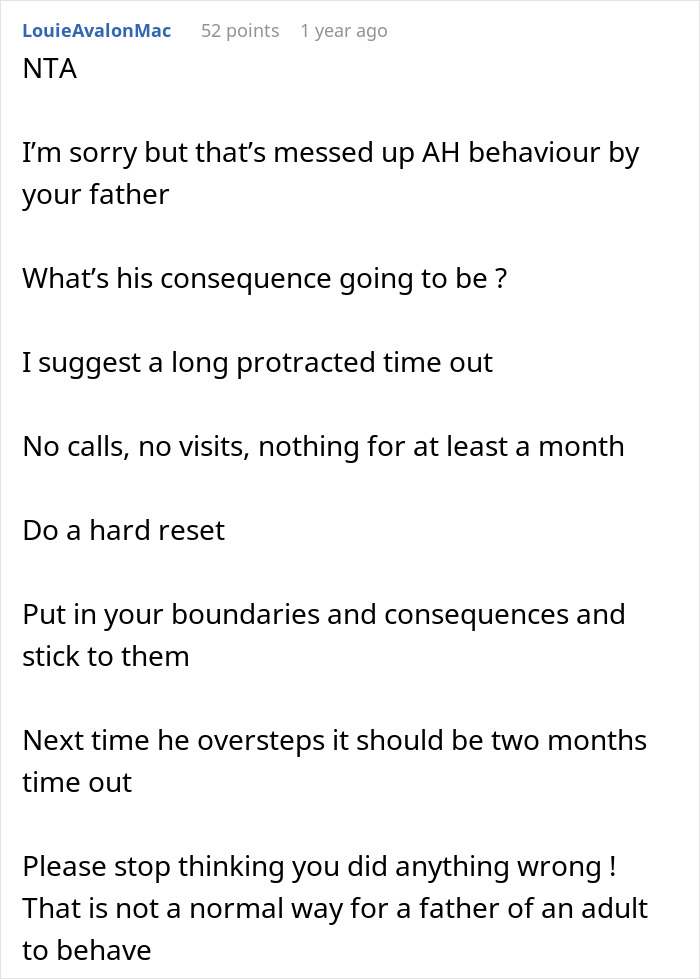

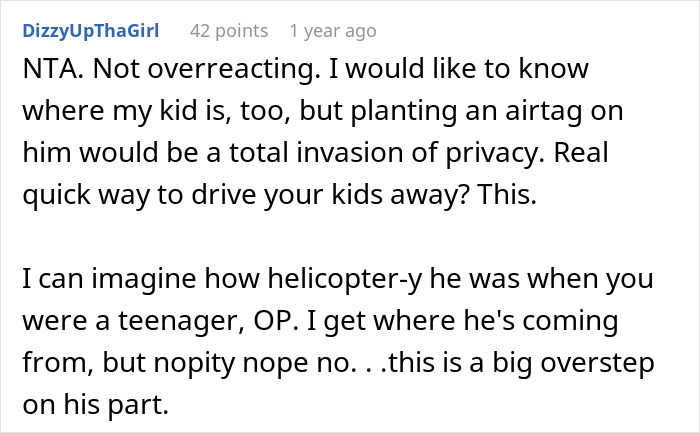


The author later added an update, saying she decided to go low contact with her father
